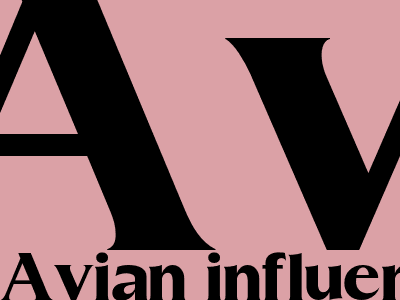
Avian Influenza: A Growing Threat to Public Health
Understanding Avian Influenza
Avian influenza, also known as bird flu, is a highly contagious viral infection that affects birds. It can cause a range of symptoms from mild respiratory issues to severe illness and death.
The virus is primarily transmitted through contact with infected bird droppings or secretions. Humans can become infected by handling infected birds or consuming contaminated poultry products.
The Pandemic Potential
Certain strains of avian influenza have the potential to cause pandemics in humans. The most well-known example is the H5N1 strain, which has caused outbreaks in multiple countries.
Pandemic strains of avian influenza can spread rapidly through human populations, leading to widespread illness and death. The World Health Organization (WHO) estimates that a severe pandemic could kill millions of people worldwide.
California's Response
California has been proactive in addressing the threat of avian influenza. The state has established a comprehensive surveillance program to monitor for the virus and implement containment measures if an outbreak occurs.
The California Department of Public Health (CDPH) has also developed a pandemic preparedness plan to ensure a coordinated response in the event of a widespread outbreak.
Prevention and Control
The most effective way to prevent avian influenza is to avoid contact with infected birds and poultry products.
Other preventive measures include:
- Washing hands thoroughly after handling poultry or poultry products
- Cooking poultry to an internal temperature of 165 degrees Fahrenheit
- Avoiding contact with wild birds, especially in areas where avian influenza has been reported
Treatment and Vaccination
There are currently no specific treatments for avian influenza in humans. However, antiviral medications may be used to relieve symptoms and prevent complications.
Vaccines are available to protect against certain strains of avian influenza. However, these vaccines are not widely available and are typically reserved for high-risk individuals.
Public Health Implications
Avian influenza poses a significant threat to public health. The virus has the potential to cause widespread illness and death, and there is no specific treatment.
However, proactive measures can be taken to prevent and control the virus. By following preventive measures and supporting pandemic preparedness efforts, we can help to reduce the risk of a devastating outbreak.